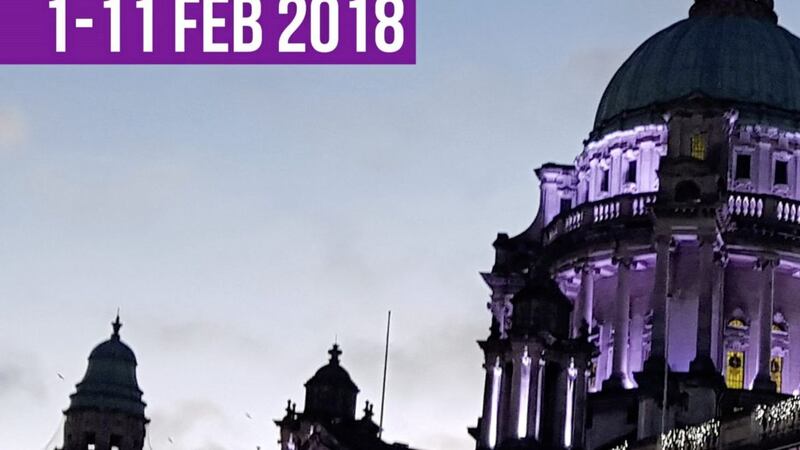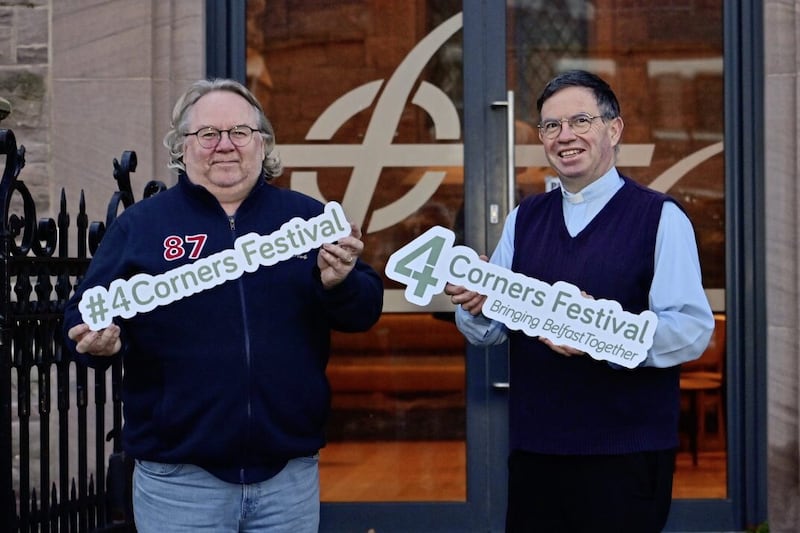ENCOUNTERING, understanding and accommodating different perspectives and experiences is at the heart of conflict resolution and peace-building.
Last summer, as part of Féile an Phobail, I was involved in organising an event in which a short film about different aspects of Protestant marching band culture was screened.
It brought together people from Catholic and Protestant communities, including members of marching bands from both communities. It provided a context through which different attitudes, perspectives and cultures could be engaged with and interrogated.
The success of the event - there was a palpable positive energy in the room - was that it changed the tone of engagement; it allowed things to be seen differently, in a way that was non-confrontational and through which genuine dialogue and exchange became possible.
It evidenced to me the powerful role that arts can play in transforming conflict and in promoting engagement where attitudes have in the past been entrenched.
The ripples of that screening are still felt, including acting as a catalyst for a discussion event next week at the start of the annual 4 Corners Festival.
Called 20 Years On: A Conflict Frozen in Time?, it will engage with the issue of political progress in loyalist communities and the state of these communities two decades after the peace accord and Good Friday Agreement.
The hope engendered then has been replaced by public and political discourses that are often negative and cynical, in which loyalist communities are denied the opportunity to feel that they are a legitimate part of a post-conflict society with a positive contribution to make.
These negative attitudes towards loyalist communities stifle any context through which proper debate can take place and different perspectives and experiences encountered.
The event aims to reconnect with that period of hope and aspiration in the late 1990s; it will provide an opportunity to interrogate and explore that historic moment, and the compromise, political engagement and positive expression that characterised it.
It will also focus on the untold story behind those on the loyalist side involved in the heavy lifting of persuading armed groups to lay down their weapons and embrace non-violent and purely democratic means.
Loyalists played a crucial and increasingly unrecognised role in bringing about the conditions for peace that led to the peace accord and Good Friday Agreement
This is also a story of those who provided leadership in communities brutalised by conflict, encouraging others to follow a path into the new and uncharted waters of the peace process and political devolution.
Loyalists played a crucial and increasingly unrecognised role in bringing about the conditions for peace that led to the peace accord and Good Friday Agreement.
Today, because they are denied any ownership of their contribution to this process, they cannot be expected to feel they have any real stake in our post-conflict society.
By reconnecting with the achievements - often untold - of the past, loyalist communities can begin to reconnect with society today, challenging the negative narratives and scapegoating which pushes them to the margins.
If this is to be achieved, a change in the tone of engagement is essential. I hope that the positivity of the Féile an Phobail event can be repeated at the 4 Corners discussion.
Genuine dialogue, positive exchange and mutual understanding are the foundations for fostering and developing purposeful and sustained relationships that can accommodate our many different narratives.
Power-sharing, partnership and working for the common good depend on these relationships, and it is no surprise that the prevailing politics of self-interest has resulted in a politics of inertia.
Some may argue that it is trite to lose ourselves in some hopeful period in the past in anticipation that it may lead to a better future.
However - and let us not forget that the 4 Corners Festival is grounded in the Christian faith - it is by looking to the past that many Christians find their hope for the future, a future characterised by rebirth and renewal.
In reconnecting with the spirit of mutual respect and partnership that led to the peace accord and Good Friday Agreement, everyone can find the energy to work together to overcome the current impasse and build a better future.
For a better future we must create the conditions through which every community feels their contribution is valued and recognised and from which no-one is marginalised or excluded.
- 20 Years On: A Conflict Frozen in Time? is at St Michael's Church, Craven Street, off the Shankill Road, on Thursday February 1 at 7pm.
- The discussion panel includes: Professor Monica McWilliams, a founder of the Women's Coalition and a former chief commissioner of the Human Rights Commission; the Rev Dr Ken Newell, a former Presbyterian Moderator heavily involved in reconciliation work; security journalist Brian Rowan; William McQuiston, who served over 12 years in prison and was a prison spokesman for the UDP; and Martin Snoddon, who served 15 years in prison for UVF activity and is now active in grassroots peacebuilding. The event is supported by the Senator George J Mitchell Institute at Queen's University Belfast.
- More on 4 Corners on the festival website, Twitter and Facebook.








